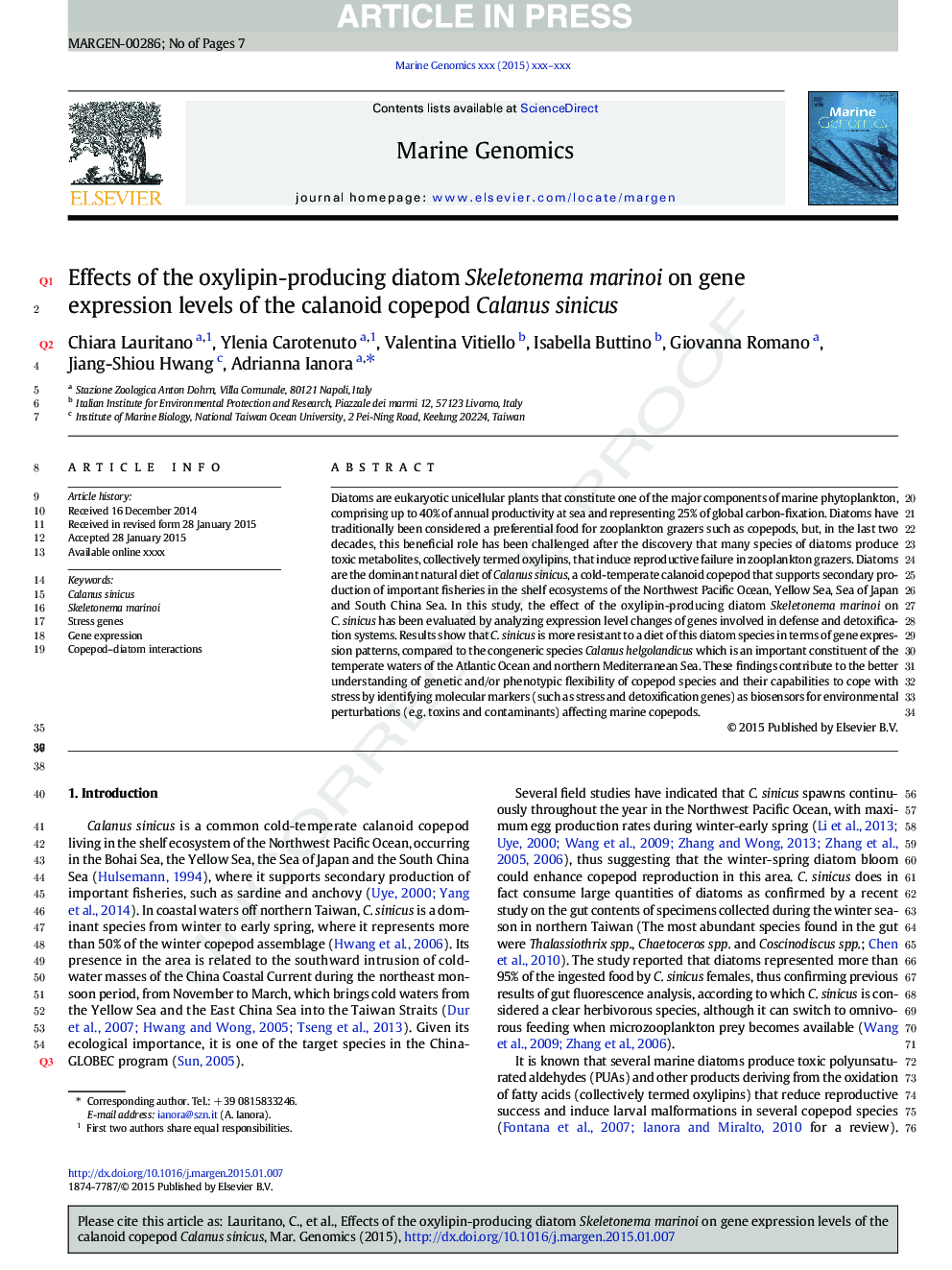| Article ID | Journal | Published Year | Pages | File Type |
|---|---|---|---|---|
| 10877888 | Marine Genomics | 2015 | 7 Pages |
Abstract
Diatoms are eukaryotic unicellular plants that constitute one of the major components of marine phytoplankton, comprising up to 40% of annual productivity at sea and representing 25% of global carbon-fixation. Diatoms have traditionally been considered a preferential food for zooplankton grazers such as copepods, but, in the last two decades, this beneficial role has been challenged after the discovery that many species of diatoms produce toxic metabolites, collectively termed oxylipins, that induce reproductive failure in zooplankton grazers. Diatoms are the dominant natural diet of Calanus sinicus, a cold-temperate calanoid copepod that supports secondary production of important fisheries in the shelf ecosystems of the Northwest Pacific Ocean, Yellow Sea, Sea of Japan and South China Sea. In this study, the effect of the oxylipin-producing diatom Skeletonema marinoi on C. sinicus has been evaluated by analyzing expression level changes of genes involved in defense and detoxification systems. Results show that C. sinicus is more resistant to a diet of this diatom species in terms of gene expression patterns, compared to the congeneric species Calanus helgolandicus which is an important constituent of the temperate waters of the Atlantic Ocean and northern Mediterranean Sea. These findings contribute to the better understanding of genetic and/or phenotypic flexibility of copepod species and their capabilities to cope with stress by identifying molecular markers (such as stress and detoxification genes) as biosensors for environmental perturbations (e.g. toxins and contaminants) affecting marine copepods.
Related Topics
Physical Sciences and Engineering
Earth and Planetary Sciences
Earth and Planetary Sciences (General)
Authors
Chiara Lauritano, Ylenia Carotenuto, Valentina Vitiello, Isabella Buttino, Giovanna Romano, Jiang-Shiou Hwang, Adrianna Ianora,
